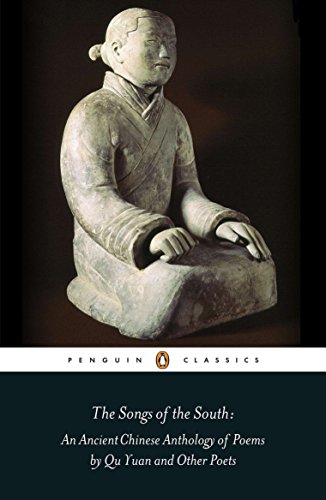Qu YuanSongs of the south

This anthology was first compiled in the second century AD. Its poems, originating from the state of Chu and rooted in Shamanism, are grouped under 17 titles.
This is a Chinese name. The family name is Qu.Qu Yuan (Chinese: 屈原; 343–278 BC) was a Chinese poet and minister who lived during the Warring States period of ancient China. He is known for his contributions to classical poetry and verses, especially through the poems of the Chu Ci anthology (also known as The Songs of the South or Songs of Chu): a volume of poems attributed to or considered to be inspired by his verse writing. Together with the Shi Jing, the Chu Ci is one of the two great collections of ancient Chinese verse.